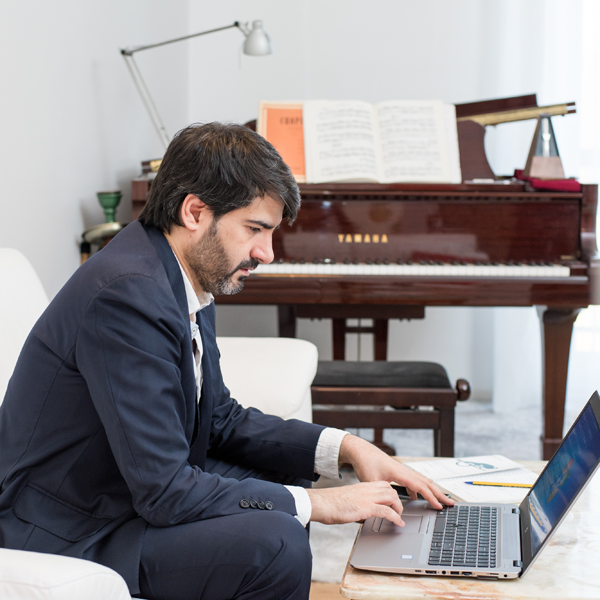
Smart working, also referred to as telecommuting or agile work, is an increasingly popular work arrangement in large enterprise and its impact is rapidly growing more evident, according to a recent survey conducted by the Politecnico di Milano “Smart Working Observatory” on 183 enterprises with over 250 employees.
“The study reveals that smart working is becoming a major phenomenon in the private sector,” points out Fiorella Crespi, Director of the Smart Working Observatory. “It has certainly taken hold in large enterprises, but not in SMEs that are more prone to disinformation and cultural resistance.” In 2018, the number of smart workers – employees who enjoy flexibility and independence in selecting their working hours and locations thanks to the use of digital tools which allow far greater mobility – has risen to 480,000 units, a 20% increase over the previous year. The study shows that these workers are more satisfied than traditional workers in terms of work organization (39% vs. 18%) and have better relations with their colleagues and managers (40% vs. 23%).
As the main reasons for this increased satisfaction, 46% of smart workers point to the opportunity of avoiding the stress of commuting, while 43% experience an improvement in the balance between their private and professional lives. In terms of work, smart work leads to an increase in the quality of produced products (41%), efficiency (38%) and professional motivation (36%). Moreover, 33% points out the positive environmental impact of smart working, such as not increasing pollution by driving to work and back home.
If we turn to large enterprises, more than half (56% of the survey sample, as opposed to 36% just one year ago) have introduced organized smart working projects, adopting models that promote flexible working hours and locations and promoting employee responsibility. Furthermore, an additional 2% has introduced informal smart working opportunities, while 8% plan to introduce smart working in 2019. Therefore, in total, 2 out of 3 large enterprises are already experimenting with some form of smart working. Amongst SMEs, smart working statistics have not changed significantly since last year: 8% have official smart working projects and 16% have informal smart work opportunities. Unlike with other types of organisations, however, a large number of employers (38%) are completely uninterested in the introduction of this new work arrangement.
Smart Working at Maire Tecnimont
The “Smart Working Awards” 2018 were also presented at the conference at which this study was illustrated. The Maire Tecnimont Group - together with A2A, Gruppo Hera and Intesa Sanpaolo - received an award for “distinction in the ability to innovate in terms of agile work.” Maire Tecnimont’s decision to introduce smart work - through the “BE ADAPTIVE! – Think Tank” Competition for ideas - was based on the understanding that an irreversible process was already underway and the best thing to do was to directly involve its employees, the true protagonists of workplace transformation models.
“For a group like Maire Tecnimont, which belongs to a traditional industry sector,” explains Pierroberto Folgiero, CEO, Maire Tecnimont, “the reorganization of processes, spaces and habits to adopt smart working is even more competitive than that faced by the digital sector, but it represents a new and advantageous opportunity to aggregate and involve our community.”
“Personally, I have always been a smart worker,” comments Fabrizio Di Amato, President, Maire Tecnimont. “Today, technology makes this much easier and we are eager to extend this approach to our entire organisation. We want to be pioneers and exploit the full potential of this new model. Indeed, in my vision of enterprise, relations with people has always been fundamental. Working to reach results has always been the best way to make people more responsible, as well as providing them with a greater flexibility to manage their work hours and location.”
Franco Ghiringhelli, SVP, Human Resources, Organization and ICT, points out “In Maire Tecnimont, smart workers can choose to work wherever is best-suited to their activities. They schedule their week with their manager and can even come in to the office only once a week. This guarantees continuity in the interaction, exchange of views and collaboration with colleagues, and avoids that anyone lose contact with the company organization.”
MEETinG for Co-working
In order to adopt this new work model, Maire Tecnimont redesigned office spaces and technology to promote multimedia and polyfunctional tools. Even the layout of common areas (canteen, hall) and individual work stations at the Torri Garibaldi Milan Headquarters were modified to meet the new needs. “The transformation of our spaces,” explains Di Amato, “led to a greater involvement of Milan residents. And this is why we have provided an open facility, a hub to promote exchange, business and culture. We are ready to share our experience, abilities and facilities with the City of Milan, an ideal context to nurture this new work culture.”
“MEETinG is our new hub dedicated to coworking.” concludes Folgiero, “In an advanced model, even work systems must be innovated to keep abreast of new approaches, enjoying digital tools and the new philosophy of work organization. It is no longer about a place to reach in the morning, but about the results that must be achieved. Smart working helps our employees to work in the ‘right place’ and produce the expected results, whether they are at a work site, a supplier’s components plant or a desk at a co-working facility. This is a cultural change that requires us to reconsider and optimize space; in fact, it is an entirely new way of working.”